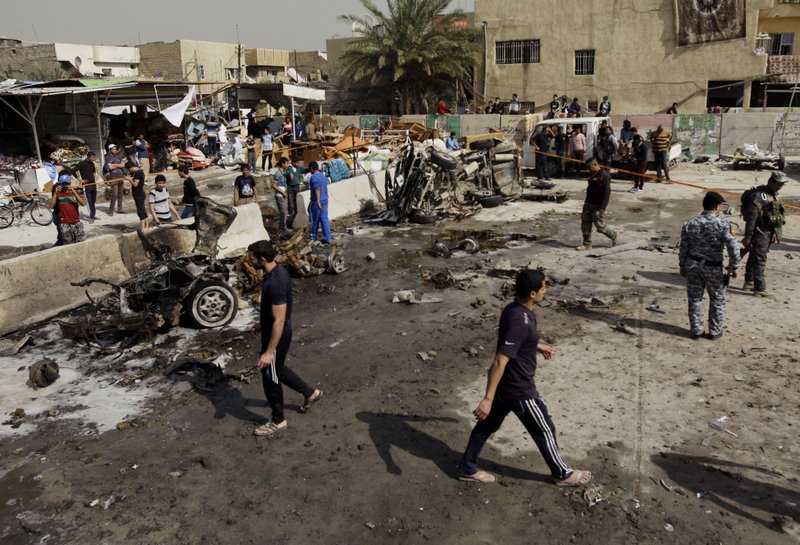BAGHDAD — Multiple car bombs exploded within minutes of each other as Iraqis were out shopping in and around Baghdad on Sunday, killing at least 37 people and wounding more than 100 in mainly Shiite areas.
The attacks come amid rising sectarian discord in Iraq and appear aimed at shaking Iraqis’ confidence in the Shiite-led government. The explosions struck at the start of the local work week and primarily targeted outdoor markets.
Violence in Iraq has fallen since the height of sectarian fighting in 2006 and 2007, but insurgents still frequently launch lethal attacks against security forces and civilians. It was at least the third time this month that attacks have claimed more than 20 lives in a single day.
The detonation of a parked car loaded with explosives in the sprawling Shiite district of Sadr City heralded the start of the attacks Sunday morning. Two more parked cars later exploded elsewhere in the neighborhood.
Nima Khadum, a government employee, said the blasts shattered the windows of his Sadr City house. He said the air was heavy with smoke, while burning cars littered the street and the bodies of the dead and wounded lay nearby.
“The scene was a bloody one that brought to my mind the painful memories of the violent past,” he said. “I don’t see the benefit of security checkpoints that only cause traffic jams and don’t do anything to secure Baghdad. The government, with its failing security forces, bears full responsibility for the bloodshed today.”
Simultaneous explosions hit the southeastern Baghdad neighborhood of al-Amin, where the force of the blasts left behind little except the mangled chassis of two cars that delivered their payloads.
There was no immediate claim of responsibility for the attacks, but similar ones have been orchestrated by Sunni extremists, such as al-Qaida’s local affiliate. The group, known as the Islamic State of Iraq, favors large-scale, coordinated attacks. It considers Shiite Muslims to be heretics and accuses them of being too closely aligned with neighboring Shiite powerhouse Iran.
As sectarian strife mounts, protesters drawn overwhelmingly from Iraq’s Sunni community have been staging weekly demonstrations and sit-ins since late December to rally against the government, which is led by Shiite Prime Minister Nouri al-Maliki. The protesters have rejected calls for violence and distance themselves from extremist groups such as al-Qaida.
There are also concerns that Sunni insurgents could step up attacks ahead of provincial elections scheduled for April 20. The ballot would be the first country-wide vote since the U.S. troop withdrawal more than a year ago.
The United Nations envoy to Iraq, Martin Kobler, quickly condemned the attacks and said “all Iraqi leaders have a responsibility to stand up against these atrocious crimes.”

